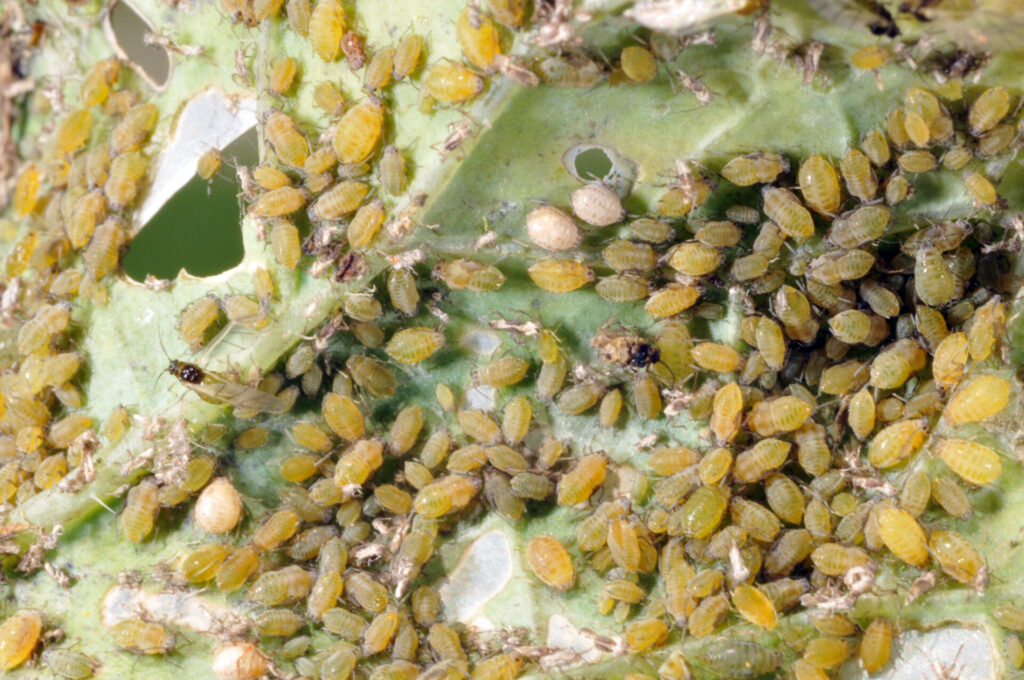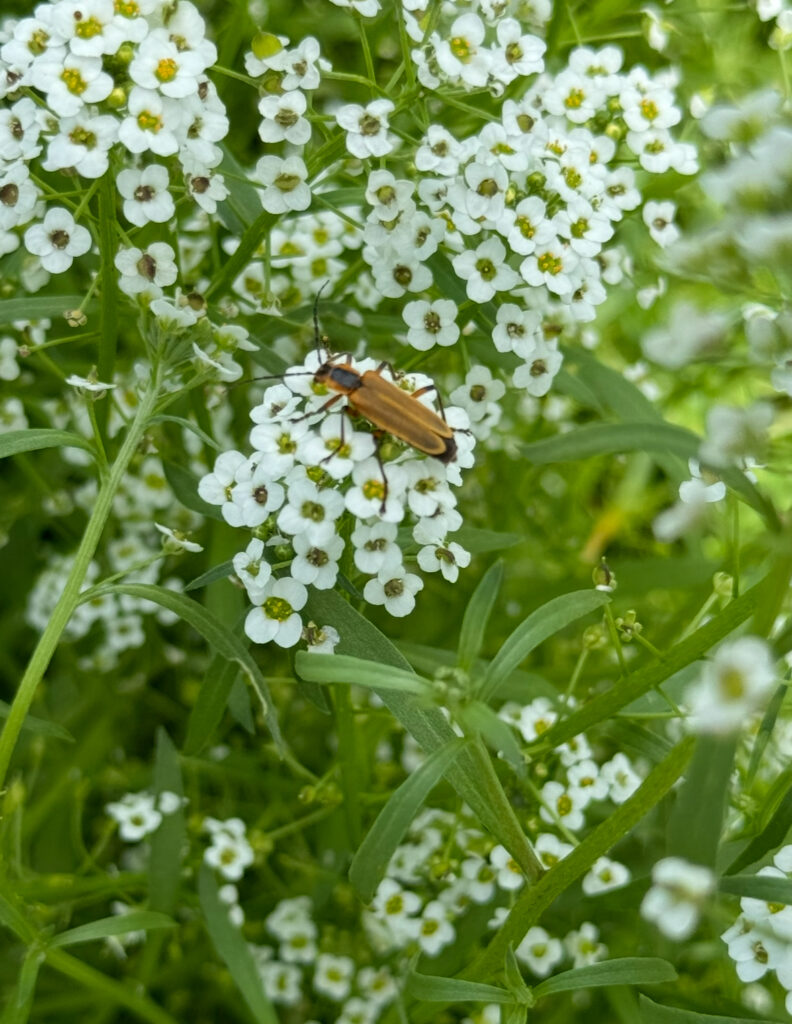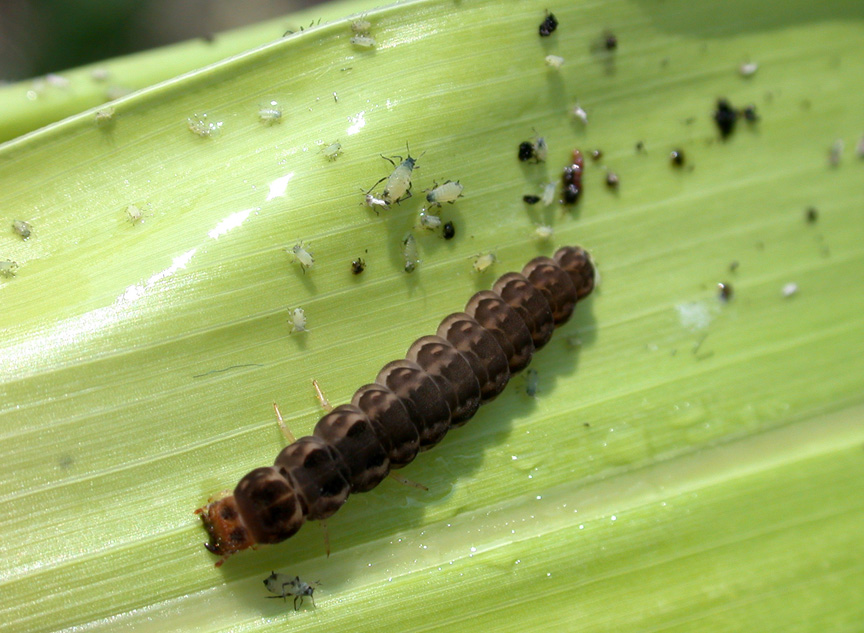If you’re scouting for cabbage aphids (Figure 1) in your brassicas this summer, don’t overlook one of your garden’s lesser-known allies: soldier beetles, also known as leatherwings (Figure 2). These beneficial insects can be valuable predators, especially when aphid populations begin to surge in warm weather. Cabbage aphids are difficult to manage due to their rapid reproduction and their ability to hide within curled leaves. For this reason, conserving natural enemies that can reduce aphid populations is important.
Soldier beetles are most active during the summer and are commonly found visiting flowers. Adults feed on nectar and pollen, but they don’t stop there! They also prey on a variety of soft-bodied insects, including cabbage aphids (Brevicoryne brassicae) and even the eggs of some caterpillars. Both the adults and larvae are predatory, making this beetle a double threat to garden pests.
Last season, we observed soldier beetles in raised beds planted with kale and sweet alyssum. These beds had a steady floral presence, which likely helped sustain beetle populations. The adults were frequently spotted patrolling kale leaves and flower heads.
Soldier beetles undergo complete metamorphosis as they develop from egg to adult. Adult females typically lay their eggs in clusters in the soil or in organic litter/topsoil, often at the end of summer. After feeding as larvae (Figure 3) in the soil, they pupate underground and emerge as adults later in the season. These larvae are primarily carnivorous, feeding on a variety of insect eggs, larvae, and pupae of other arthropods found in the soil. They are known to prey on pests like grasshopper eggs, cucumber beetles, and corn rootworms. To support them, maintaining undisturbed soils and floral resources is key. Plants like sweet alyssum, cilantro, dill, and other small-flowered herbs can provide essential nectar sources to keep them around.
Tips to Encourage Soldier Beetles in Your Garden or High Tunnel:
- Plant companion flowers like sweet alyssum, cilantro, or dill around brassicas.
- Avoid broad-spectrum insecticides, especially during flowering periods.
- Keep soil healthy with living plant material for as many months of the year as possible and minimize disturbance (tillage or cultivation), giving larvae a safe place to develop.
Soldier beetles may not get the spotlight like lady beetles or lacewings, but they play an important role in the summer insect community. They are large, brightly colored, and sometimes mistaken for fireflies because of the coloration on their abdomen. This season, keep an eye out for these leather-winged predators; they just might be helping you more than you think.


